How AI is transforming the agriculture industry?
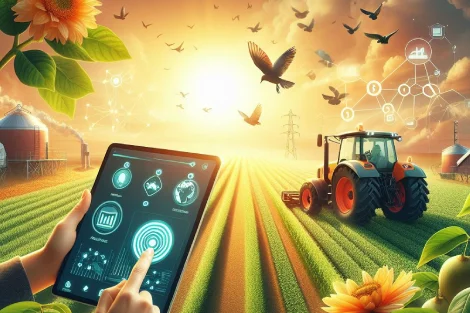
Introduction
The agricultural industry, a cornerstone of human sustenance, has long grappled with challenges that hinder its productivity, efficiency, and sustainability. However, the advent of artificial intelligence (AI) has emerged as a transformative force, revolutionizing the way we cultivate, manage, and distribute food. AI's ability to process vast amounts of data, automate tasks, and provide real-time insights has unleashed a wave of innovation that is redefining the agricultural landscape.
In this article, we will delve into the myriad ways in which AI is transforming the agriculture industry, exploring how it is enhancing crop yields, optimizing resources, and empowering farmers to make data-driven decisions that drive sustainable and profitable farming practices.
How AI is Improving Crop Yields?
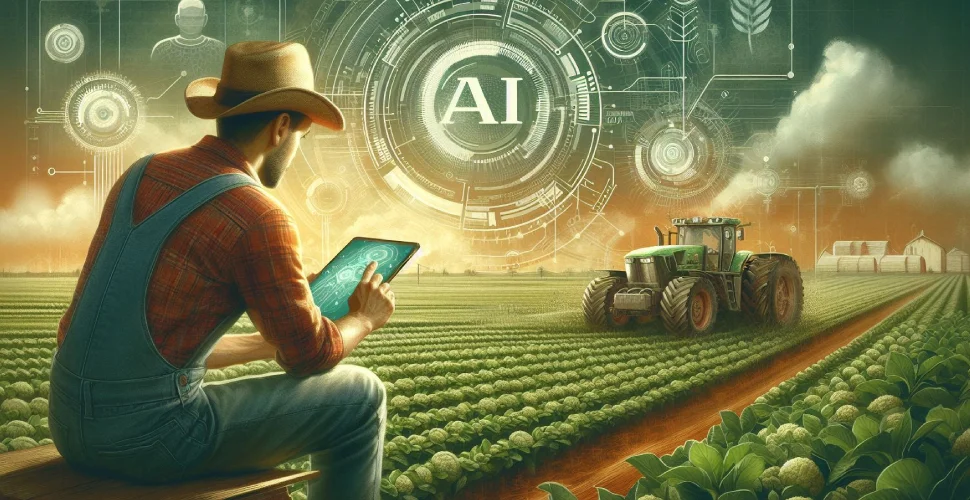
Artificial Intelligence (AI) has been revolutionizing the agricultural industry by improving crop yields in several ways. Here are some points on how AI is making a positive impact on crop production:
Precision farming
With the help of AI, farmers can analyze real-time data and make informed decisions to optimize crop production. This includes analyzing soil health, weather patterns, and pest infestations to determine the best time for planting and harvesting.
Predictive analytics
Using AI-powered algorithms, farmers can predict potential threats to their crops, such as diseases or pests, allowing them to take preventive measures before any damage occurs.
Optimal resource utilization
AI technology enables farmers to identify the exact amount of water, fertilizers, and other resources needed for specific areas of their fields. This helps in reducing unnecessary wastage and maintains a healthy balance in the soil.
Automated farming techniques
With advanced robotics and drones equipped with AI, tasks such as seeding and spraying can be automated, making farming more efficient and less labor-intensive.
Disease detection
By using image recognition technology, AI can scan plants for signs of disease or nutrient deficiencies that may not be visible to the naked eye. This allows farmers to take corrective actions early on and prevent major losses in yield.
By using AI to improve crop yields, farmers can produce more food with fewer resources. This is essential for meeting the growing global demand for food.
How AI is Reducing Costs?
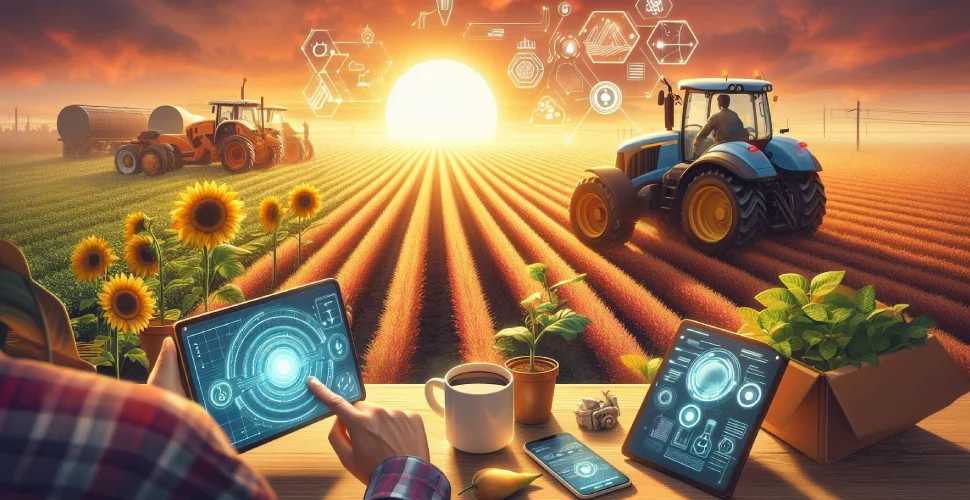
Artificial Intelligence (AI) has emerged as a game-changer in various industries, helping businesses to streamline their processes and reduce costs. Here are some ways AI is reducing costs:
Automation
AI-powered automation has significantly reduced the need for manual labor, leading to cost savings for businesses.
Predictive maintenance
With the help of AI algorithms, machines can predict when they will need maintenance, preventing unexpected breakdowns and costly repairs.
Supply chain optimization
By using machine learning techniques, businesses can analyze data from various sources and make accurate predictions about demand and supply patterns, optimizing their inventory levels and reducing costs.
Personalized marketing campaigns
AI can analyze customer data and create targeted marketing campaigns, increasing the chances of conversion and saving on advertising costs.
Improved efficiency
AI systems can handle tedious tasks with speed and accuracy, freeing up employees' time to focus on more critical tasks that add value to the business.
Minimal errors
With AI's high precision capabilities, there is a significant reduction in human errors that can be costly for a business.
Fraud detection
Using AI-based fraud detection tools helps companies identify fraudulent activity early on, saving them from potential financial losses.
Challenges and Opportunities of AI in Agriculture
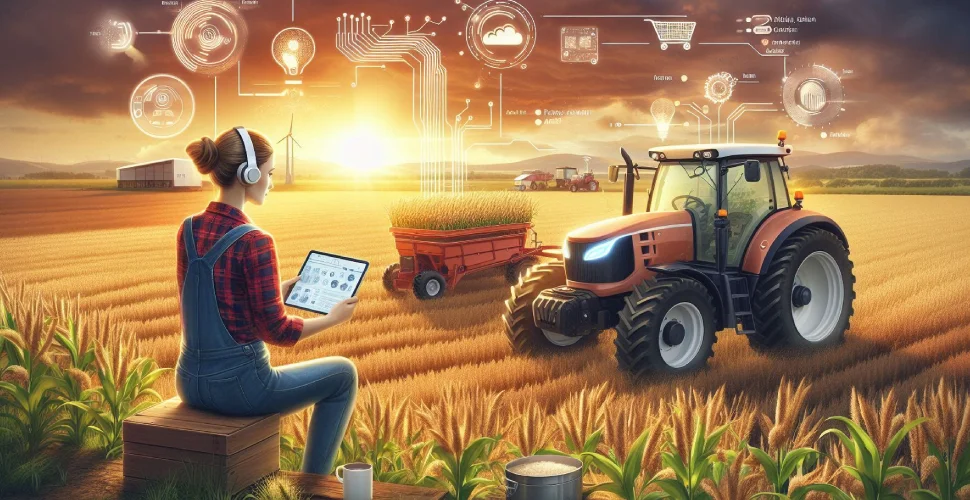
While AI has the potential to revolutionize the agriculture industry, there are also some challenges and opportunities that need to be addressed.
Challenges
Data Quality and Availability
Accessing reliable and comprehensive data is crucial for AI models, but agriculture often faces data scarcity or inconsistencies.
Algorithm Complexity
Developing AI algorithms that can handle the complex and dynamic nature of agricultural systems is challenging.
Integration with Existing Systems
Integrating AI solutions into existing agricultural operations can be difficult due to compatibility issues and legacy systems.
Cost and Infrastructure
Implementing AI technologies requires significant investment in hardware, software, and expertise.
Bias and Fairness
AI algorithms can perpetuate biases present in the data, leading to unfair or inaccurate predictions.
Opportunities
Precision Farming
AI enables data-driven decisions on crop management, optimizing inputs (e.g., fertilizers, pesticides) and maximizing yields.
Disease and Pest Detection
AI algorithms can analyze imagery and sensor data to detect diseases and pests early on, allowing for timely interventions.
Crop Monitoring and Forecasting
AI can monitor crop health and predict yields using satellite imagery and weather data, improving planning and risk management.
Livestock Management
AI assists in monitoring animal health, optimizing feed rations, and early detection of diseases.
Supply Chain Optimization
AI can streamline agricultural supply chains by improving logistics, reducing waste, and connecting farmers to markets.
Empowering Farmers
AI tools can provide farmers with real-time insights and decision support, enhancing their productivity and profitability.
Sustainability
AI can promote sustainable farming practices by optimizing resource use, reducing environmental impact, and fostering biodiversity.
The Future of AI in Agriculture
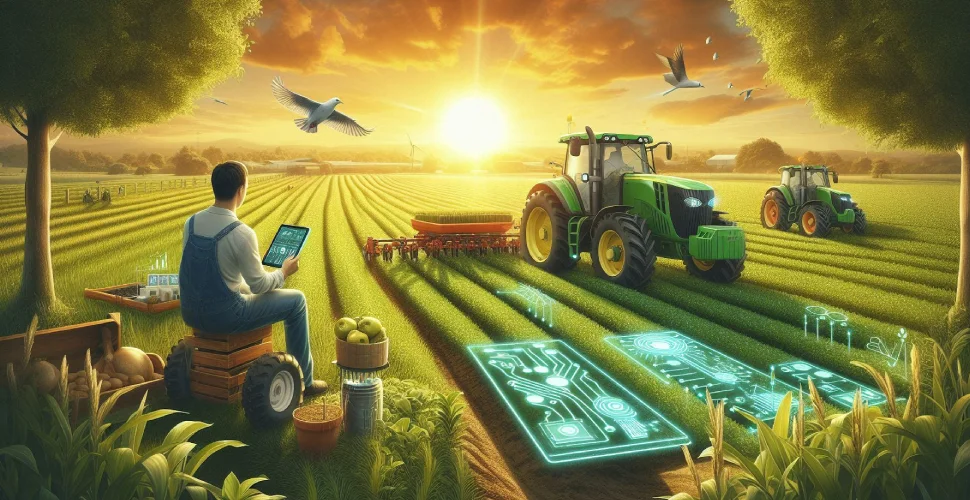
Artificial Intelligence (AI) is revolutionizing various industries, including agriculture. Here are some potential future applications of AI in agriculture:
Precision Farming
AI-powered sensors and data analytics will enable farmers to monitor crop health, soil conditions, and weather patterns in real-time. This information can be used to optimize irrigation, fertilization, and pest management, resulting in increased crop yields and reduced environmental impact.
Autonomous Agricultural Machinery
AI-driven tractors, drones, and other machinery will automate tasks such as planting, harvesting, and spraying pesticides. This will free up farmers for more strategic decision-making and reduce labor costs.
Predictive Analytics
AI algorithms can analyze historical data and current conditions to predict future crop yields, disease outbreaks, and market trends. This information can help farmers make informed decisions about crop selection, marketing, and risk management.
Personalized Crop Recommendations
AI can analyze individual farm characteristics and crop preferences to provide tailored recommendations for seed selection, planting dates, and crop management practices. This will help farmers optimize their operations for maximum productivity and profitability.
Blockchain for Traceability
AI can enhance blockchain technology to provide greater transparency and traceability throughout the agricultural supply chain. This will enable consumers to track the origin and quality of their food, ensuring safety and authenticity.
Livestock Monitoring
AI-enabled sensors can monitor the health and well-being of livestock. This can detect diseases early on, prevent epidemics, and optimize animal nutrition and management practices.
Climate Resilience
AI can help farmers adapt to changing climate patterns by predicting weather events, optimizing irrigation systems, and developing drought-resistant crop varieties. This will ensure food security in the face of climate change.
AI-Powered Food Processing
AI can optimize food processing operations by automating quality control, reducing waste, and improving efficiency. This will lead to safer, fresher, and more affordable food products.
Vertical Farming
AI can enhance vertical farming systems by optimizing lighting, temperature, and nutrient delivery. This will enable the production of high-yield crops in urban environments, reducing transportation costs and environmental impact.
AI and Agricultural Education
AI can provide personalized learning experiences for farmers, agricultural students, and researchers. Interactive simulations and virtual reality can make learning more engaging and accessible.
Also Read: How Blockchain Benefits The Agriculture Industry?
Conclusion
In conclusion, artificial intelligence is reshaping agriculture, optimizing crop yields, reducing costs, and paving the way for a more sustainable future. Challenges exist, but with innovative companies like Innow8 apps leading the charge, the potential for transformative change is within reach.
Embracing AI in agriculture holds the key to feeding a growing population while safeguarding the planet for future generations.
FAQs
How is AI being used in agriculture?
AI is being used in agriculture in a variety of ways, including precision agriculture, crop monitoring, predictive analytics, and automation. AI-powered tools and systems can help farmers make data-driven decisions, optimize crop yields, reduce waste, and improve overall efficiency.
What are some challenges in implementing AI in agriculture?
Some challenges in implementing AI in agriculture include the high cost of AI-powered systems, the need for skilled labor to operate and maintain these systems, and the potential for data privacy and security issues. Additionally, there may be resistance to adopting new technologies among some farmers, particularly those in rural areas with limited access to resources and support.
What is the future of AI in agriculture?
The future of AI in agriculture is likely to involve continued innovation and development of new tools and systems to help farmers optimize their operations. As AI technology becomes more accessible and affordable, it is expected that more farmers will adopt these tools, leading to increased efficiency, productivity, and sustainability in the agriculture industry.
AI in Agriculture: Revolutionizing Farming through Advanced Technology
Recent Blogs:

IT Outsourcing: How to Choose the right App D...
Choosing the right App development company is critical—check out this step-by-step guide to ...
Read More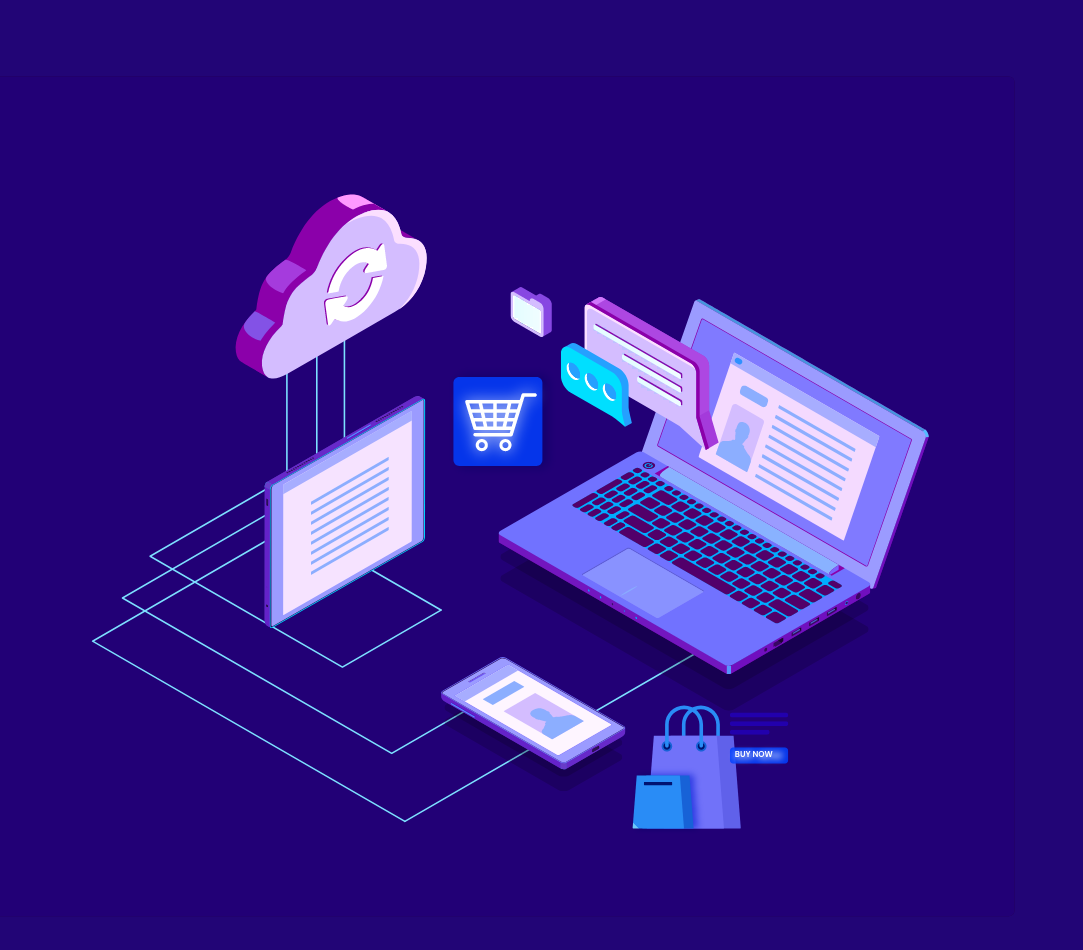
Benefits Of Cloud Computing In The eCommerce ...
In this blog, you will learn about cloud computing, its benefits in the eCommerce world, and...
Read More![How to Build an MVP in 2024? [Costs and Future Trends]](/_next/static/images/thumbnail-89e1679bb3fc1d5003bf8ea1bf958a05.webp)
How to Build an MVP in 2023? [+ Costs and Fut...
Looking to build an MVP app for your business? Read this full blog to know how you can build...
Read More